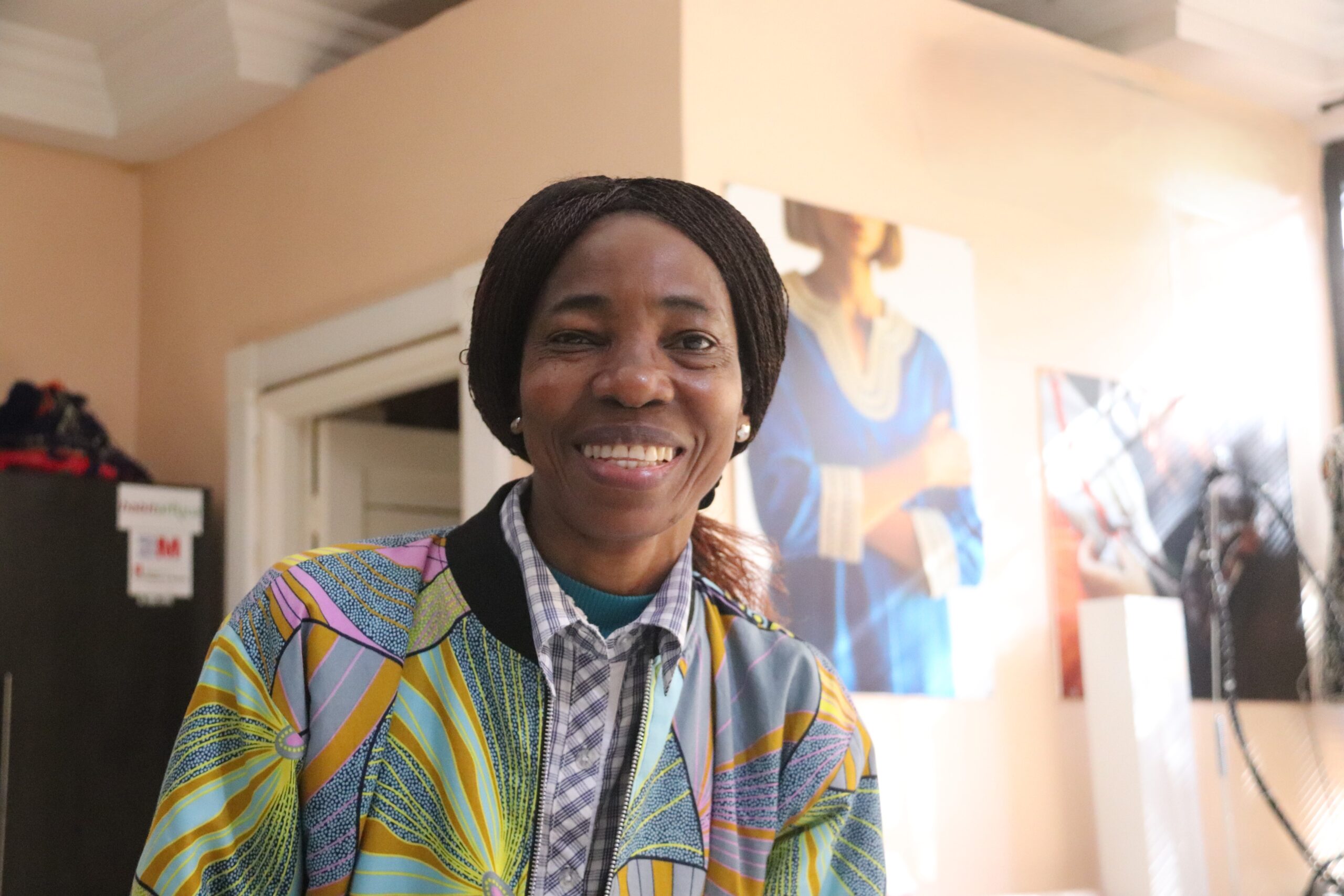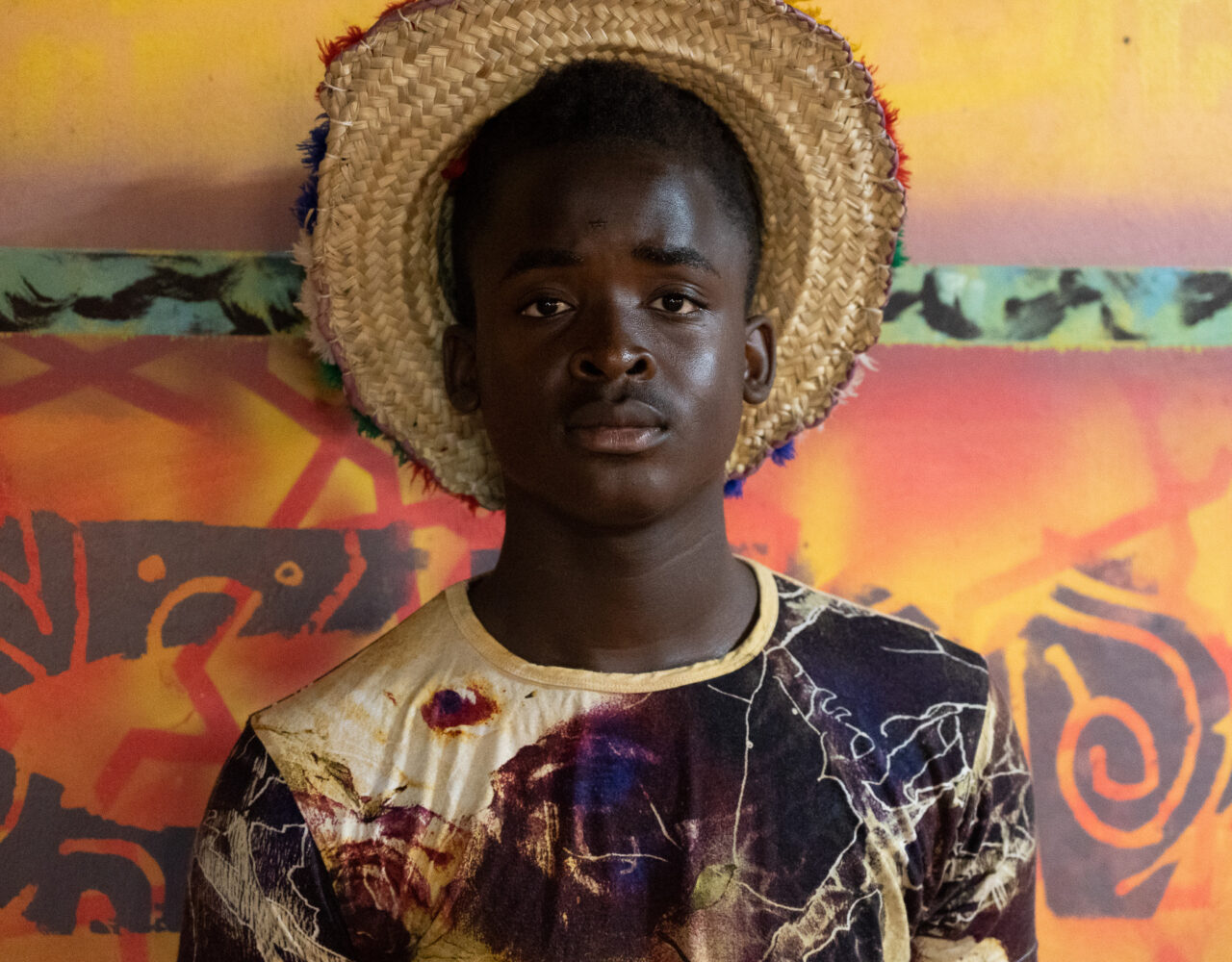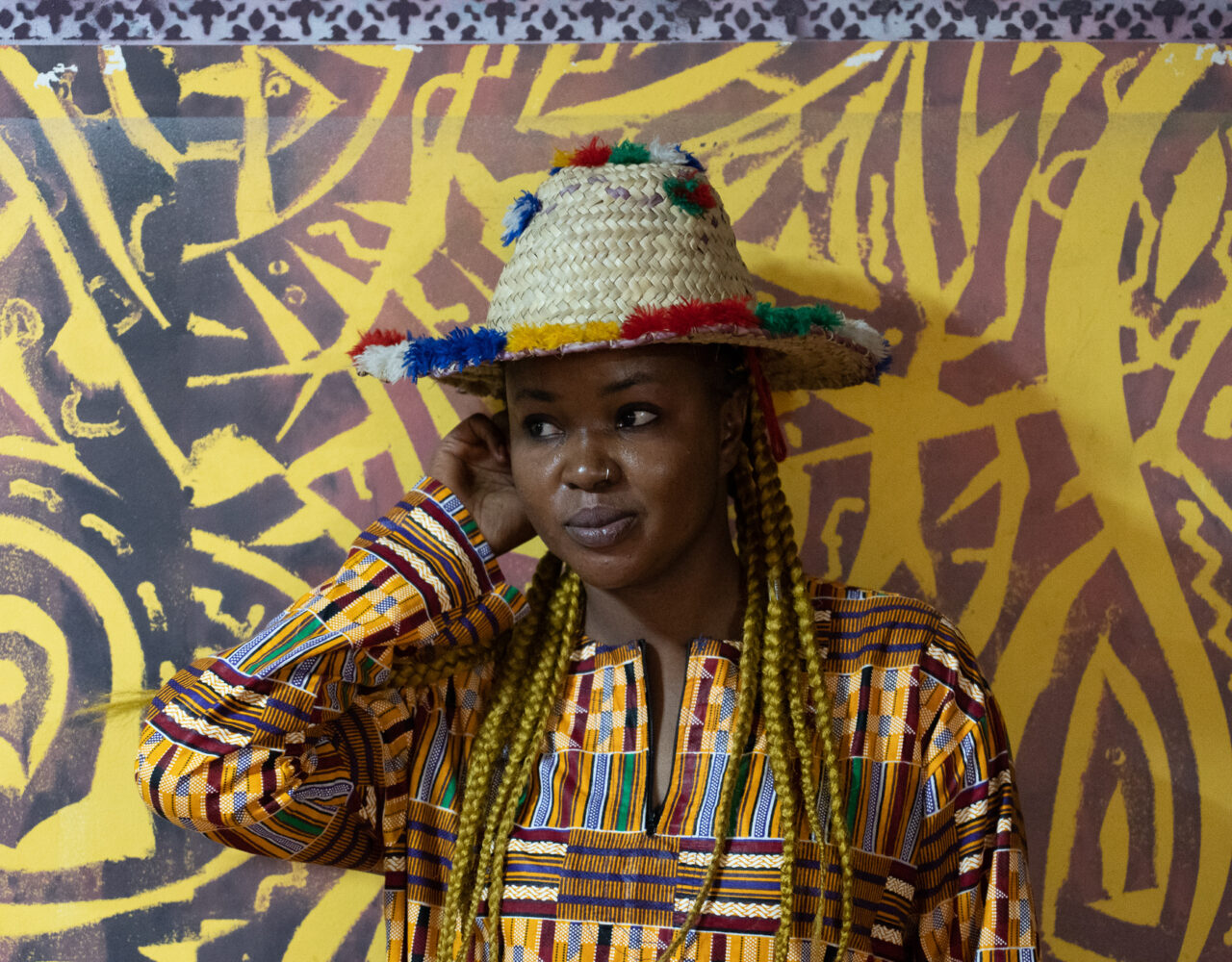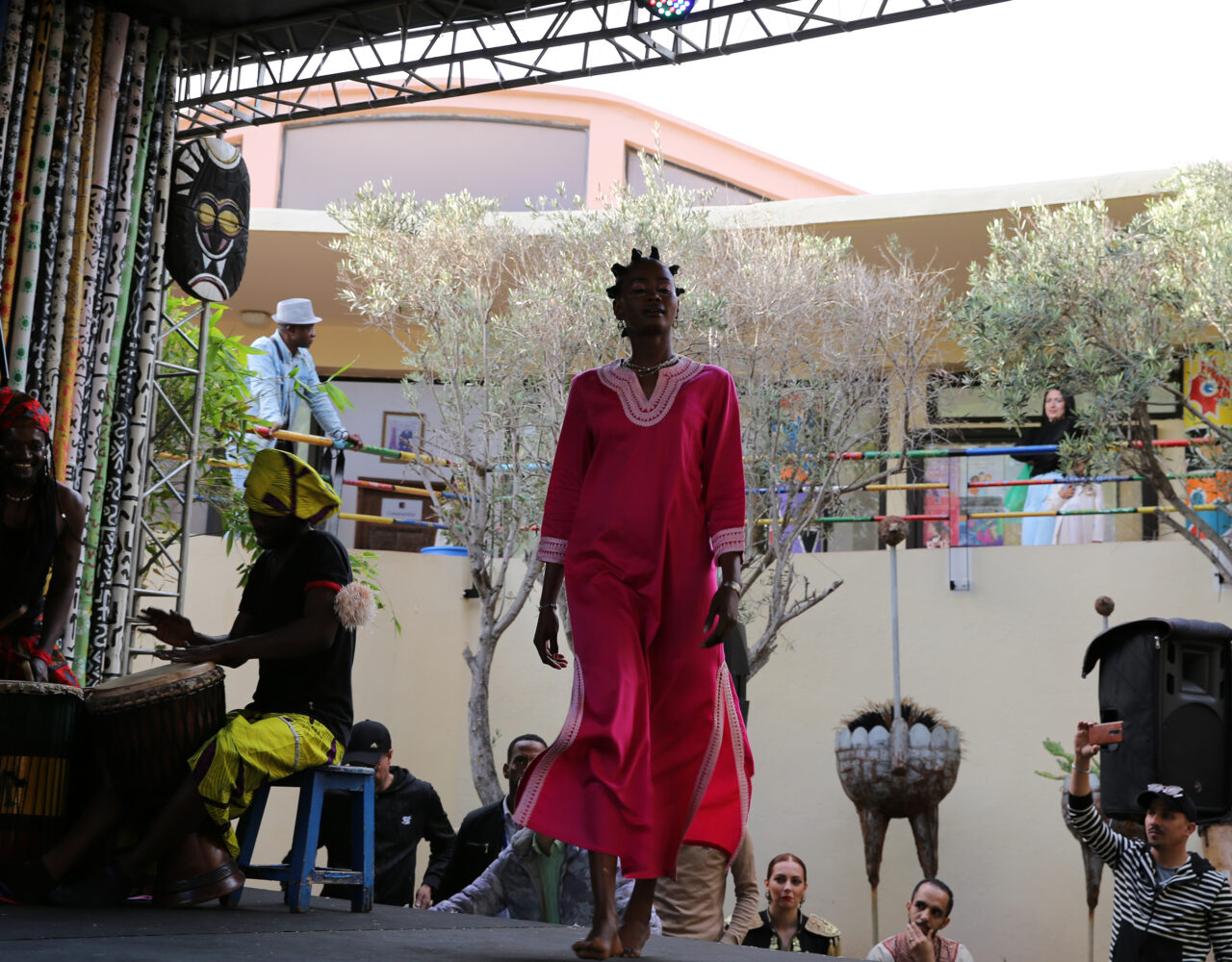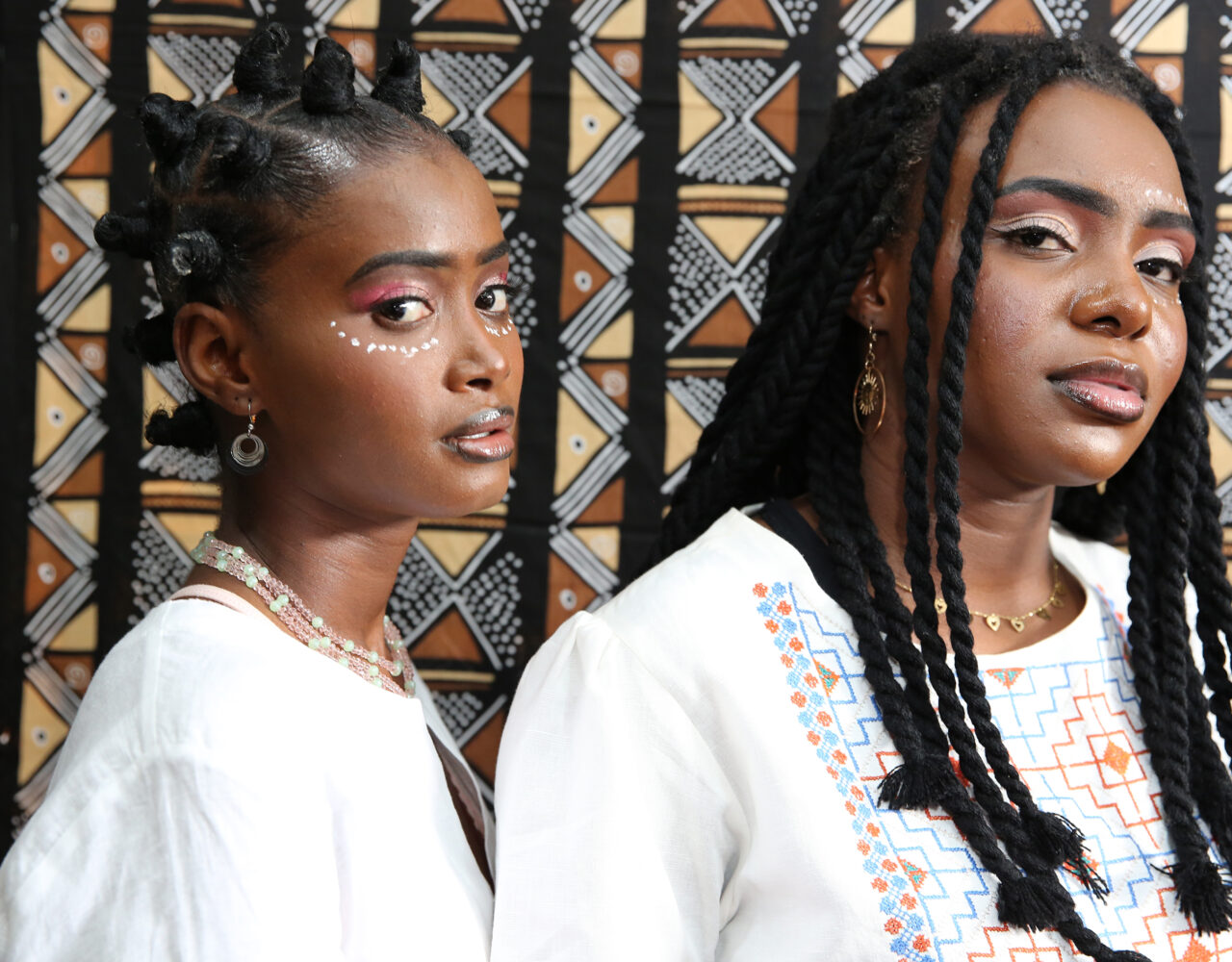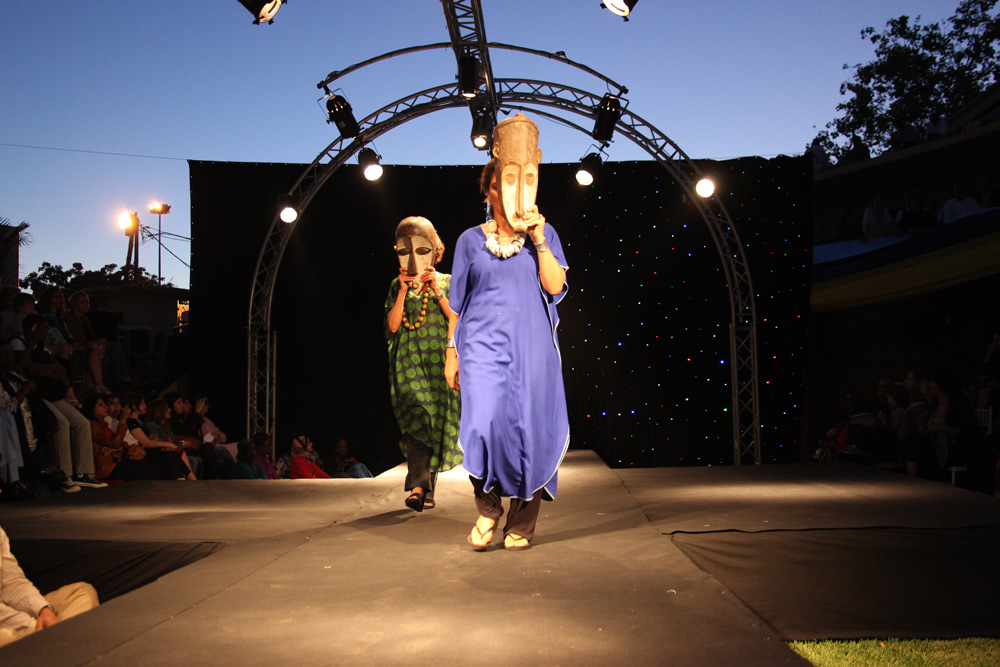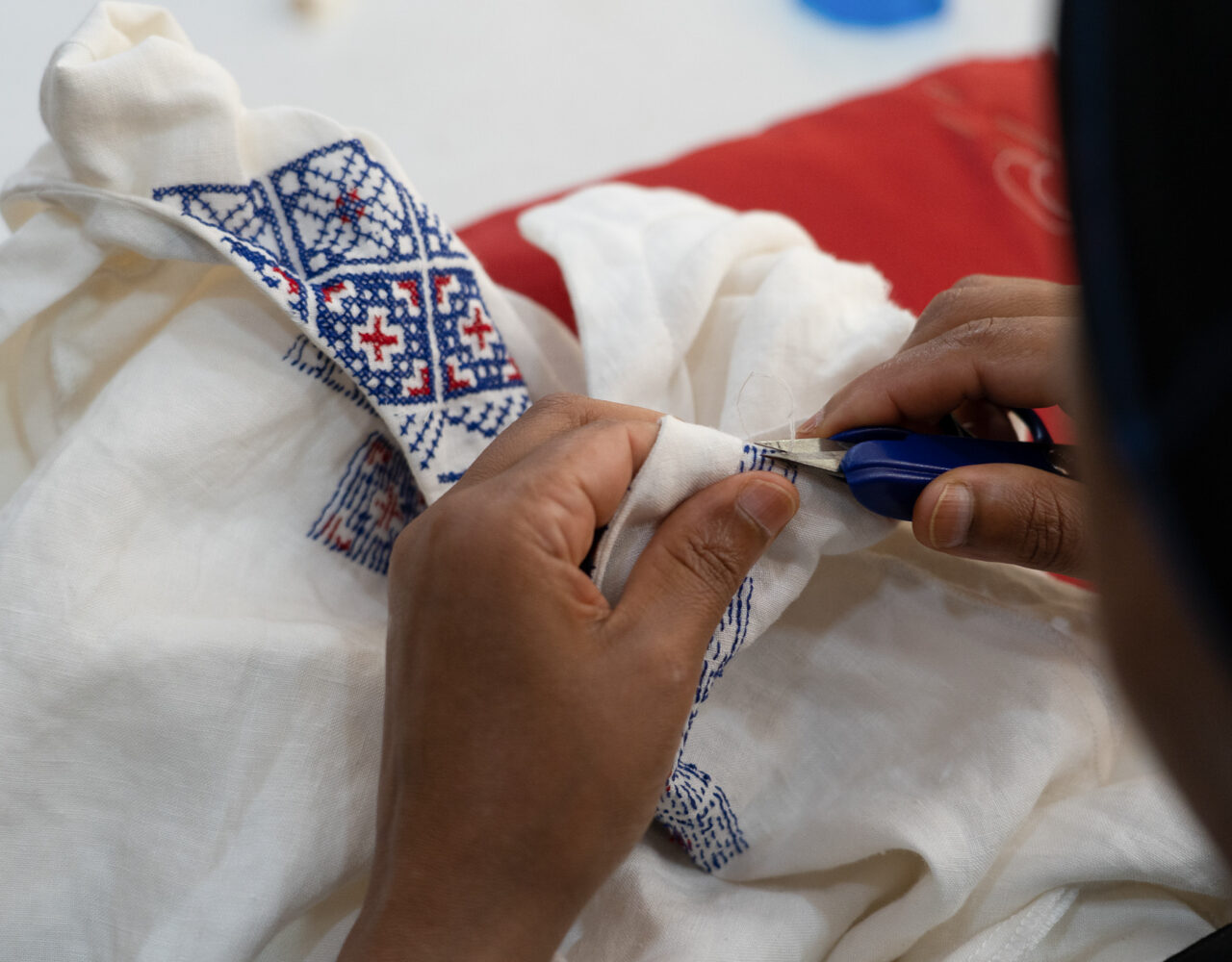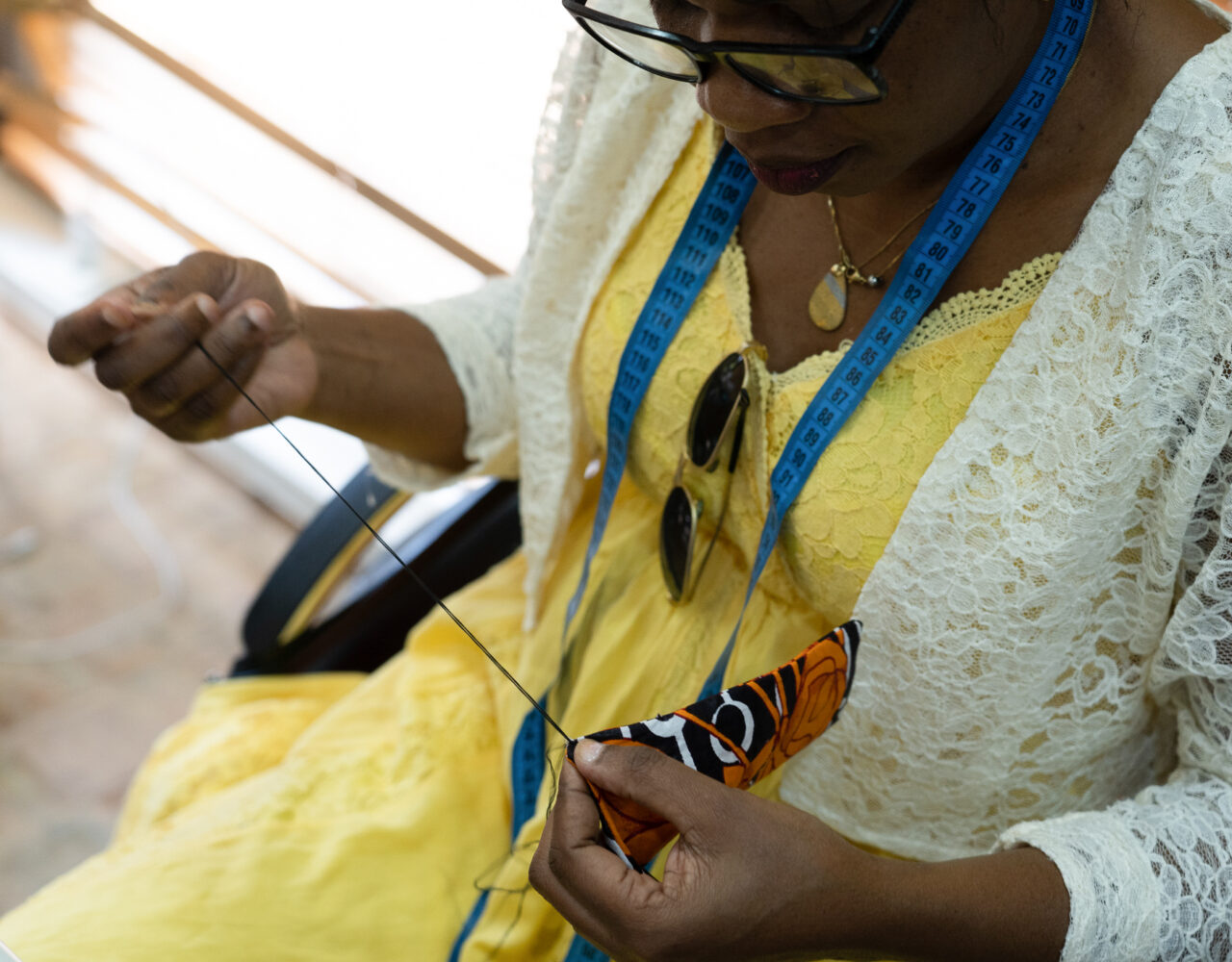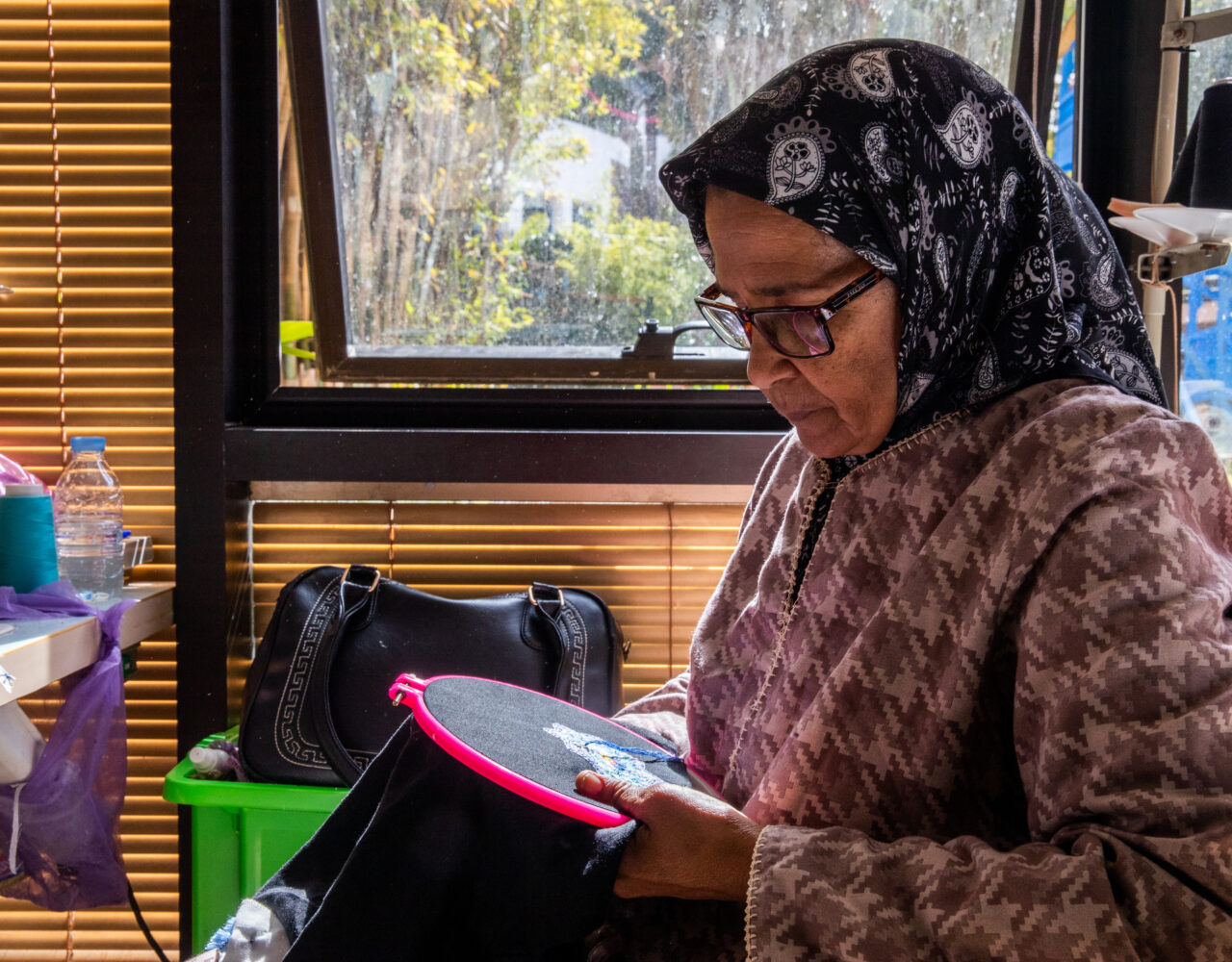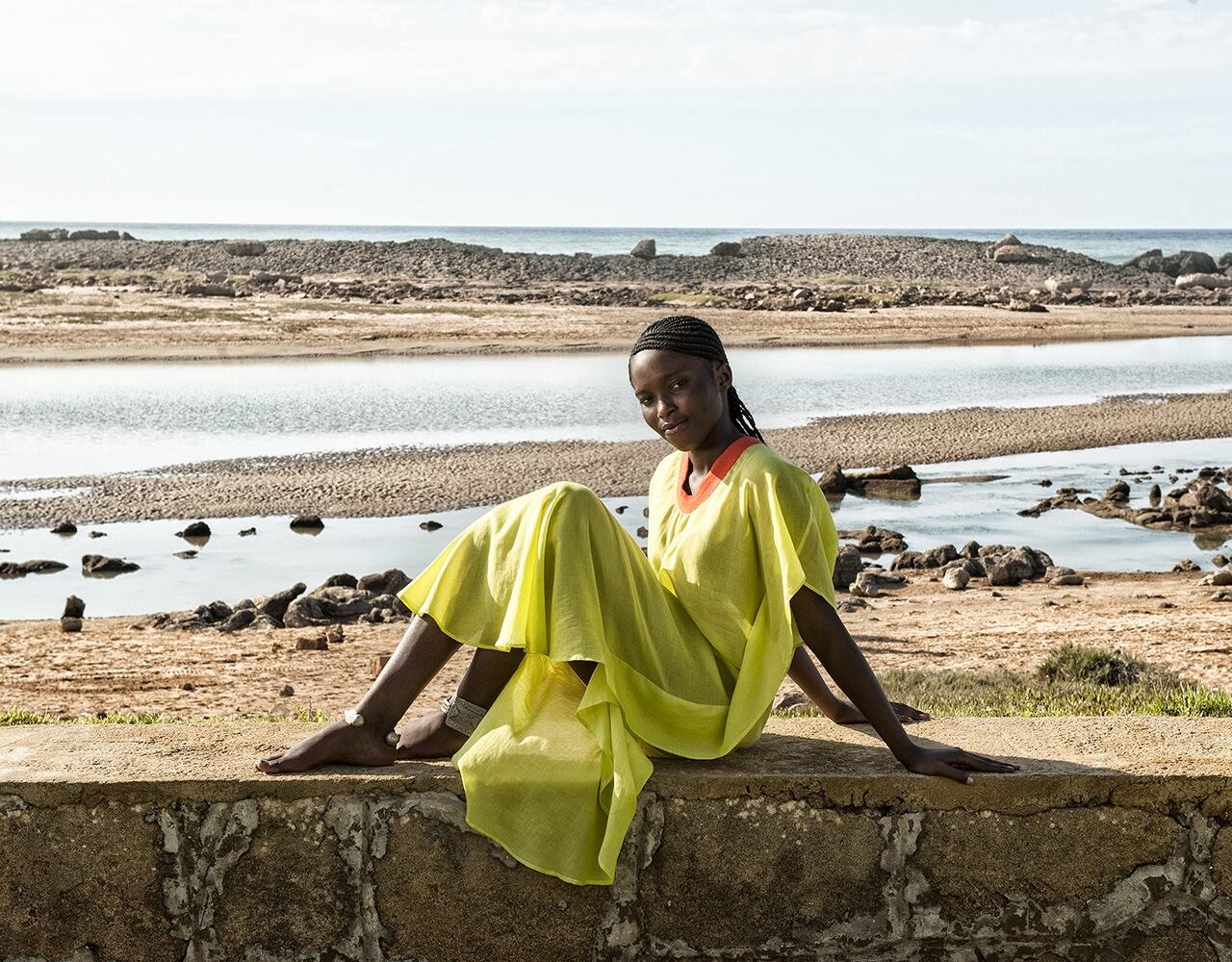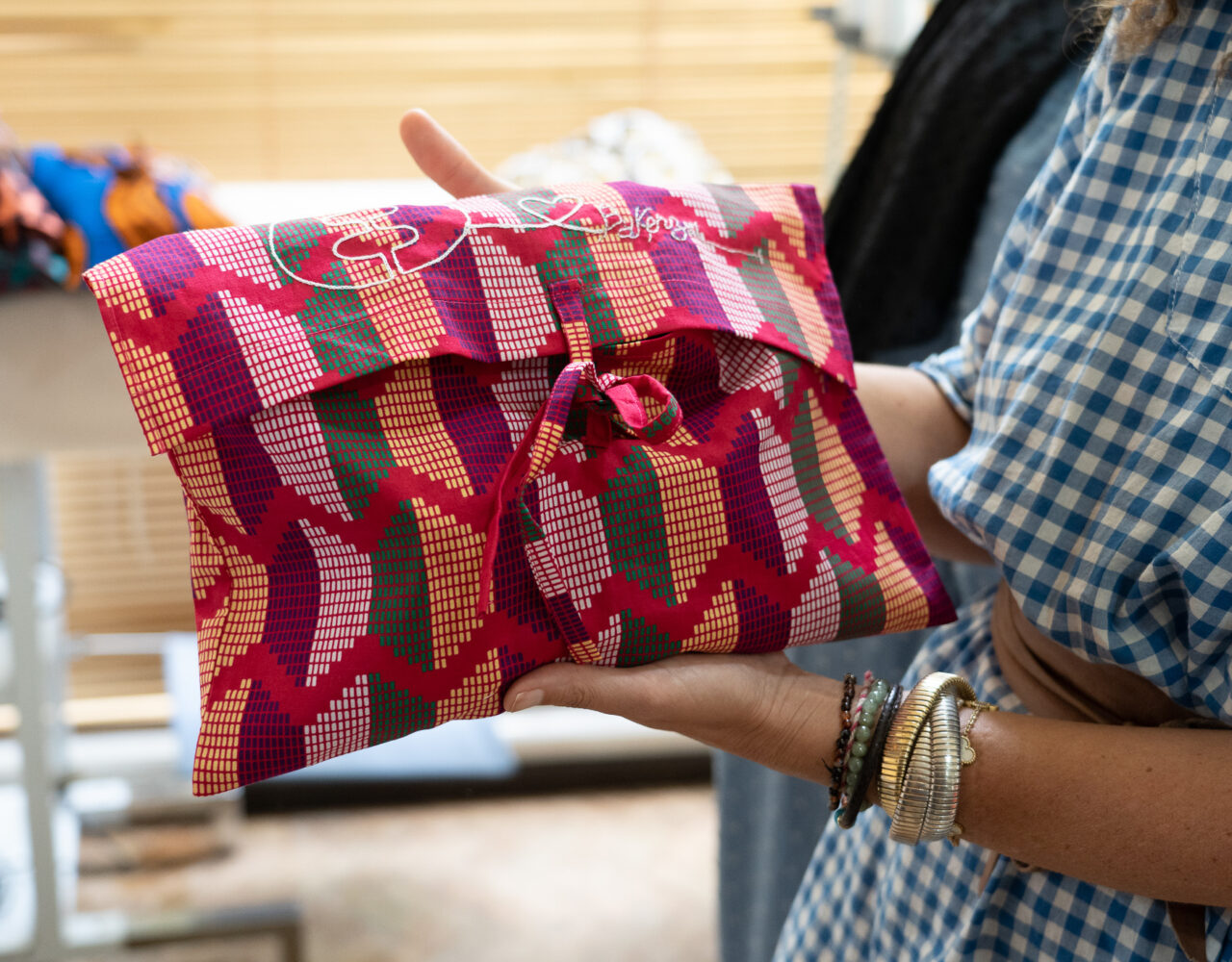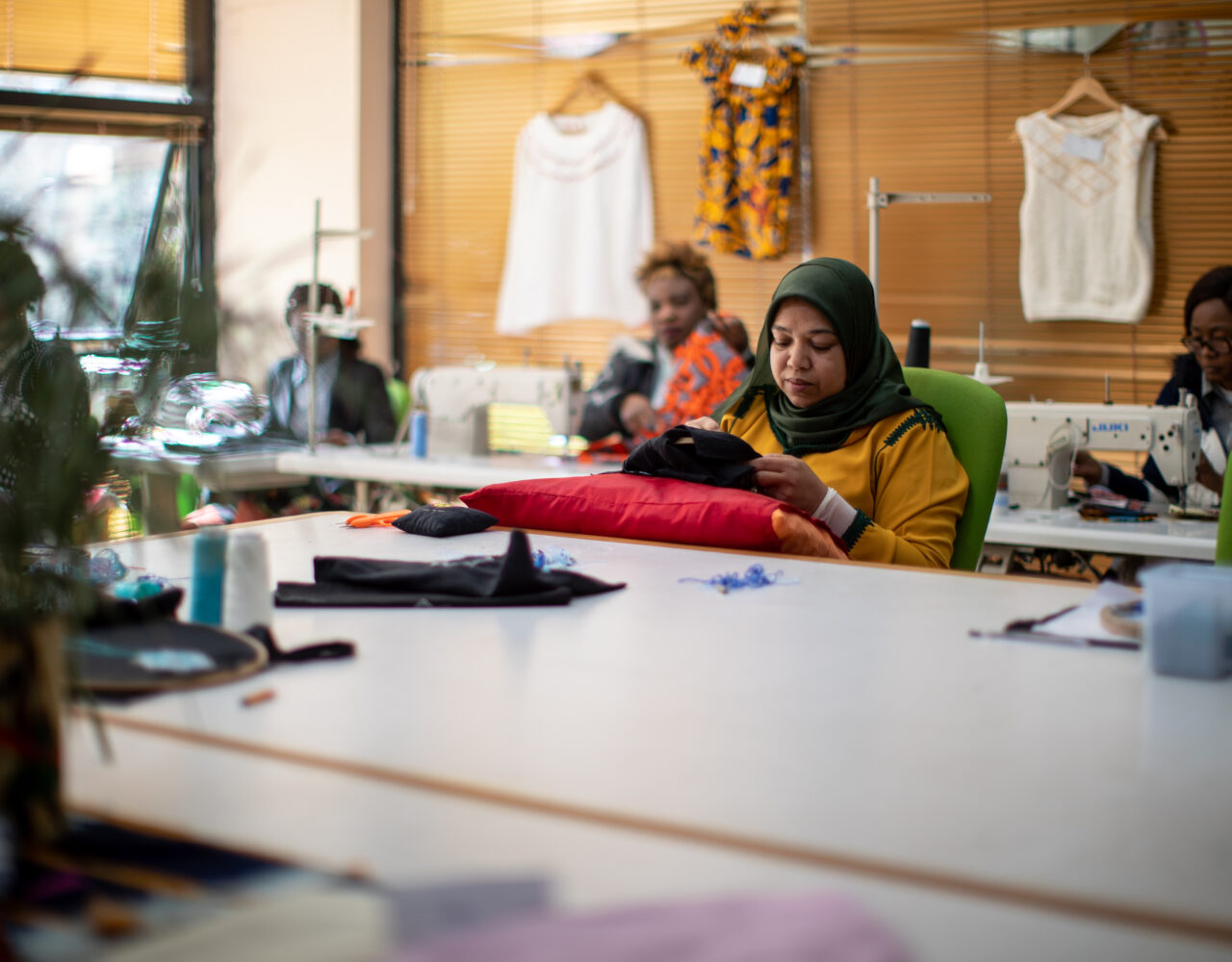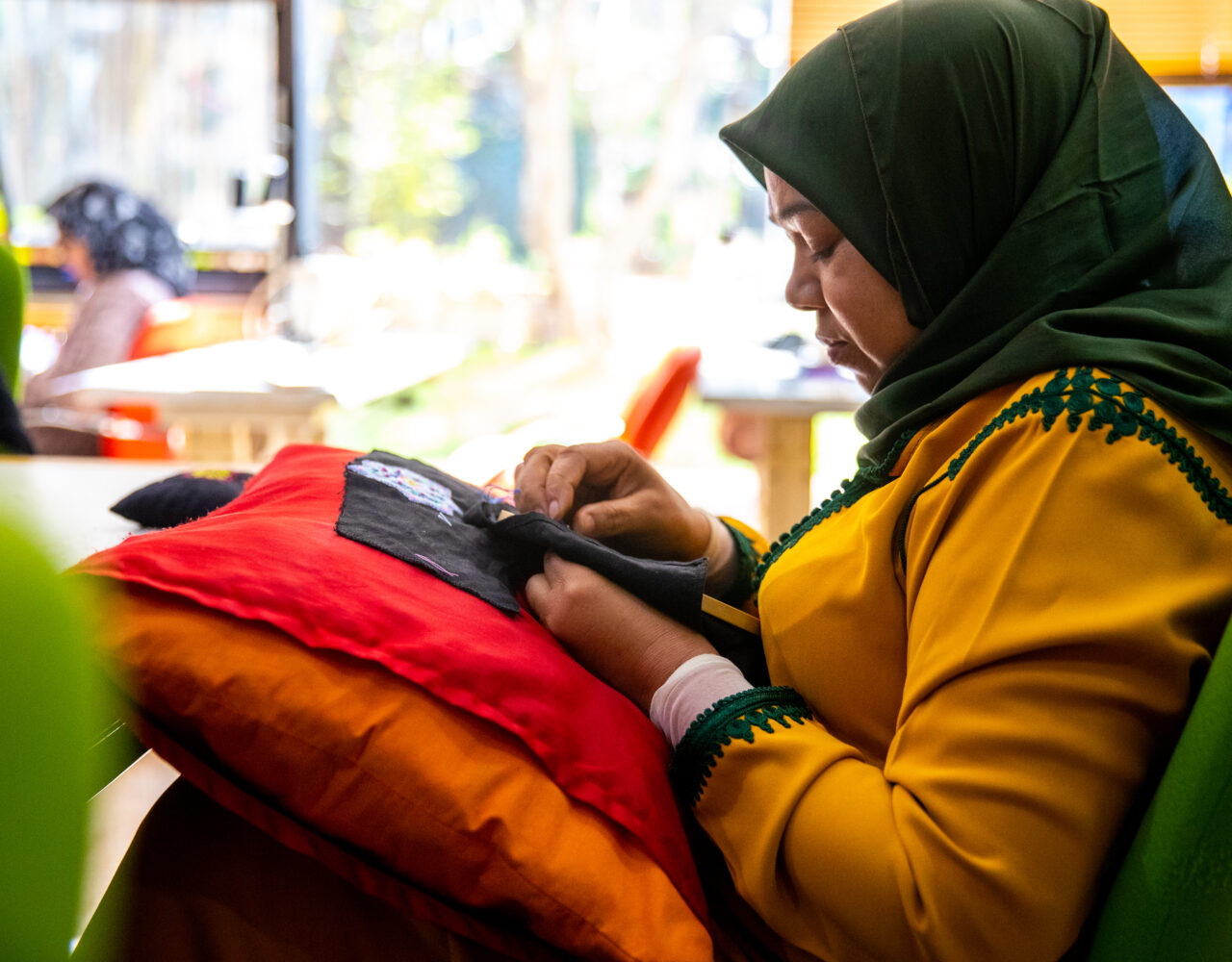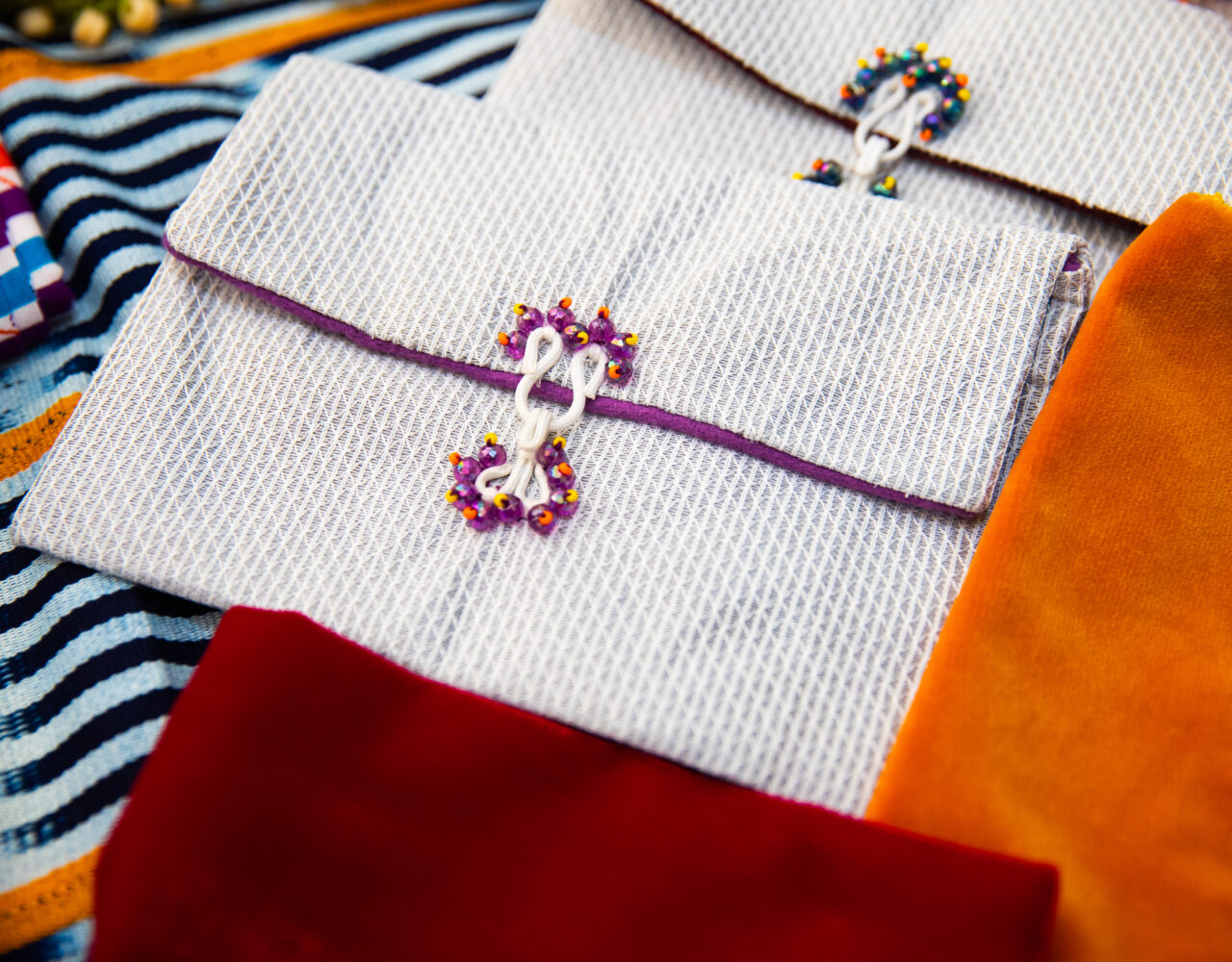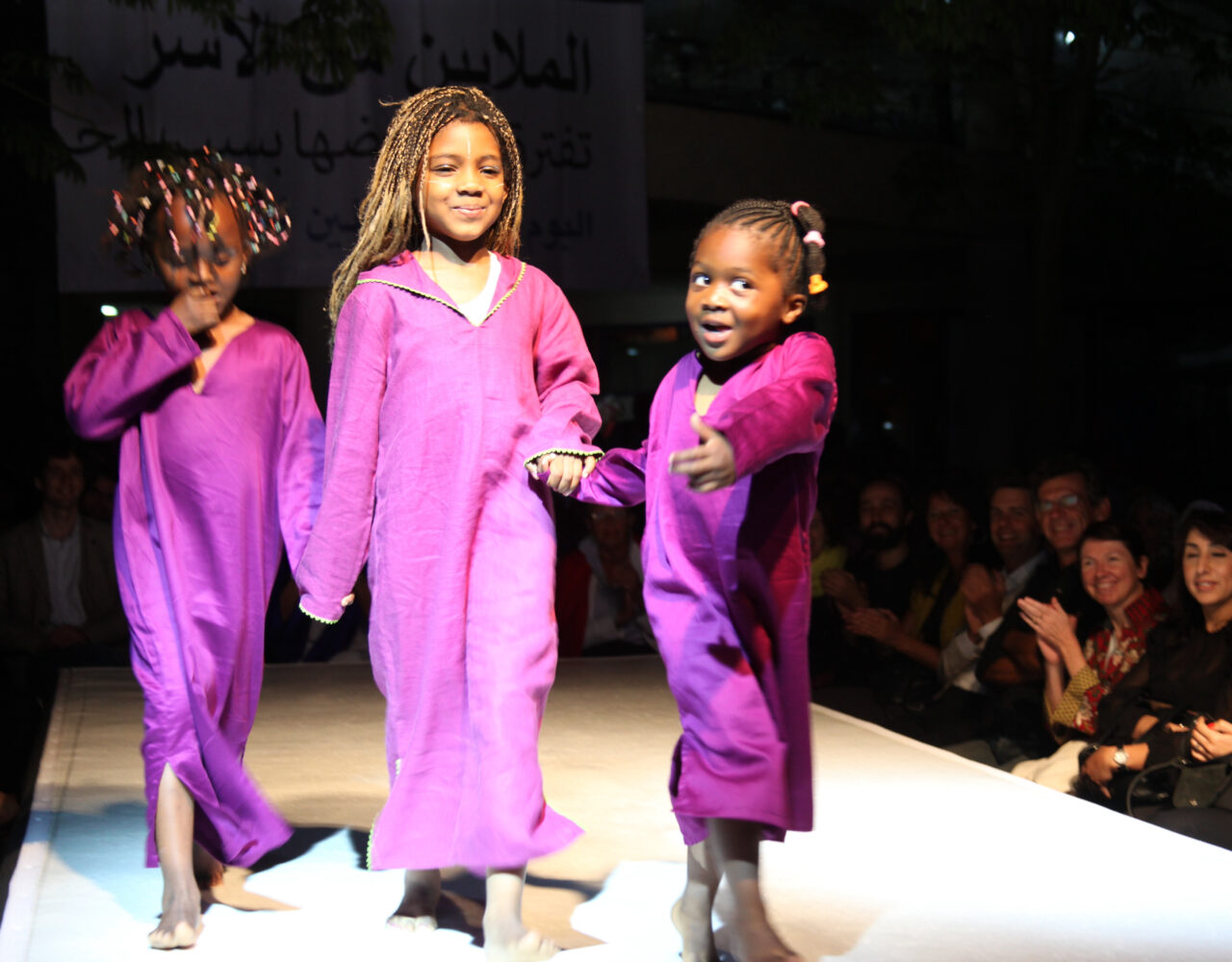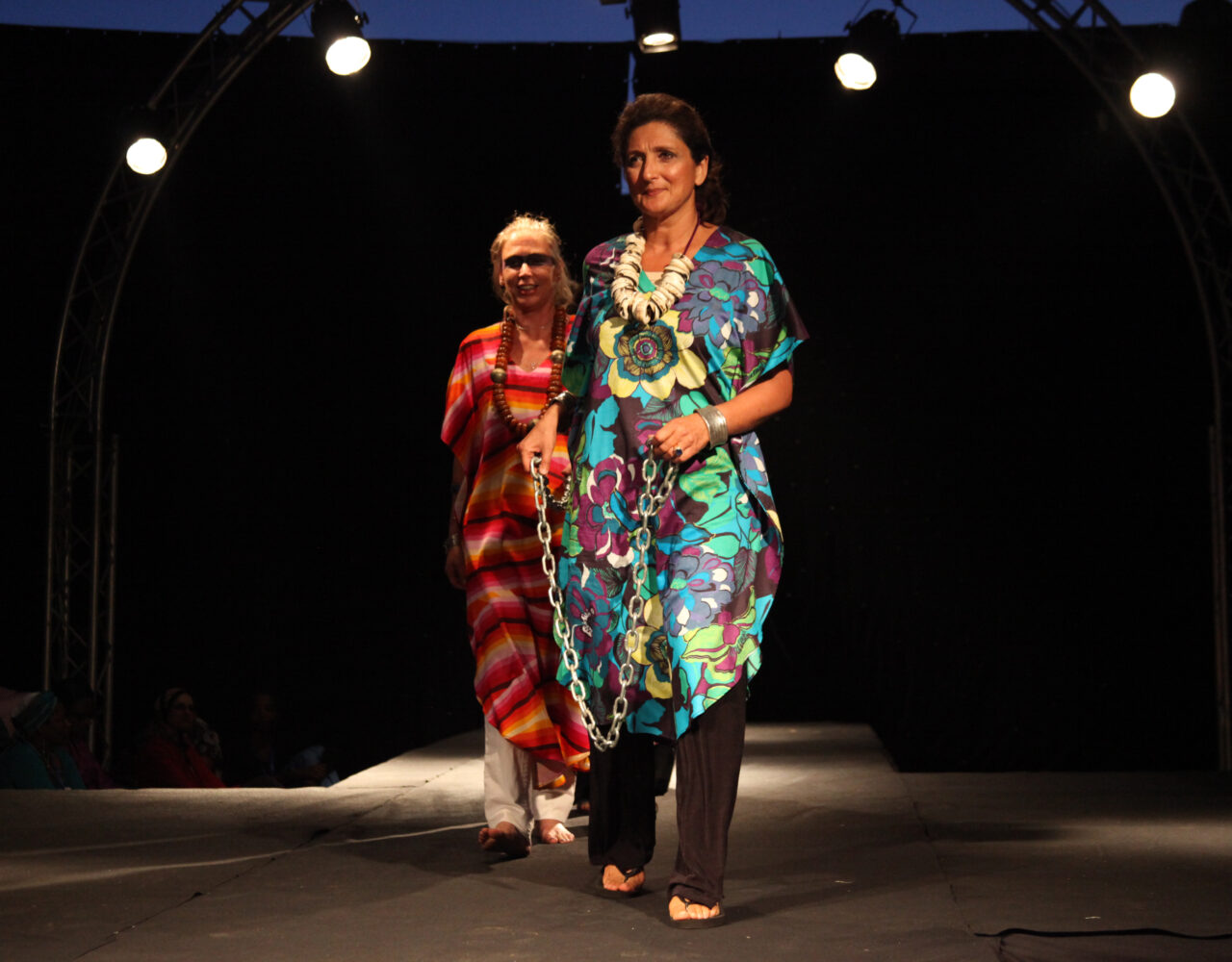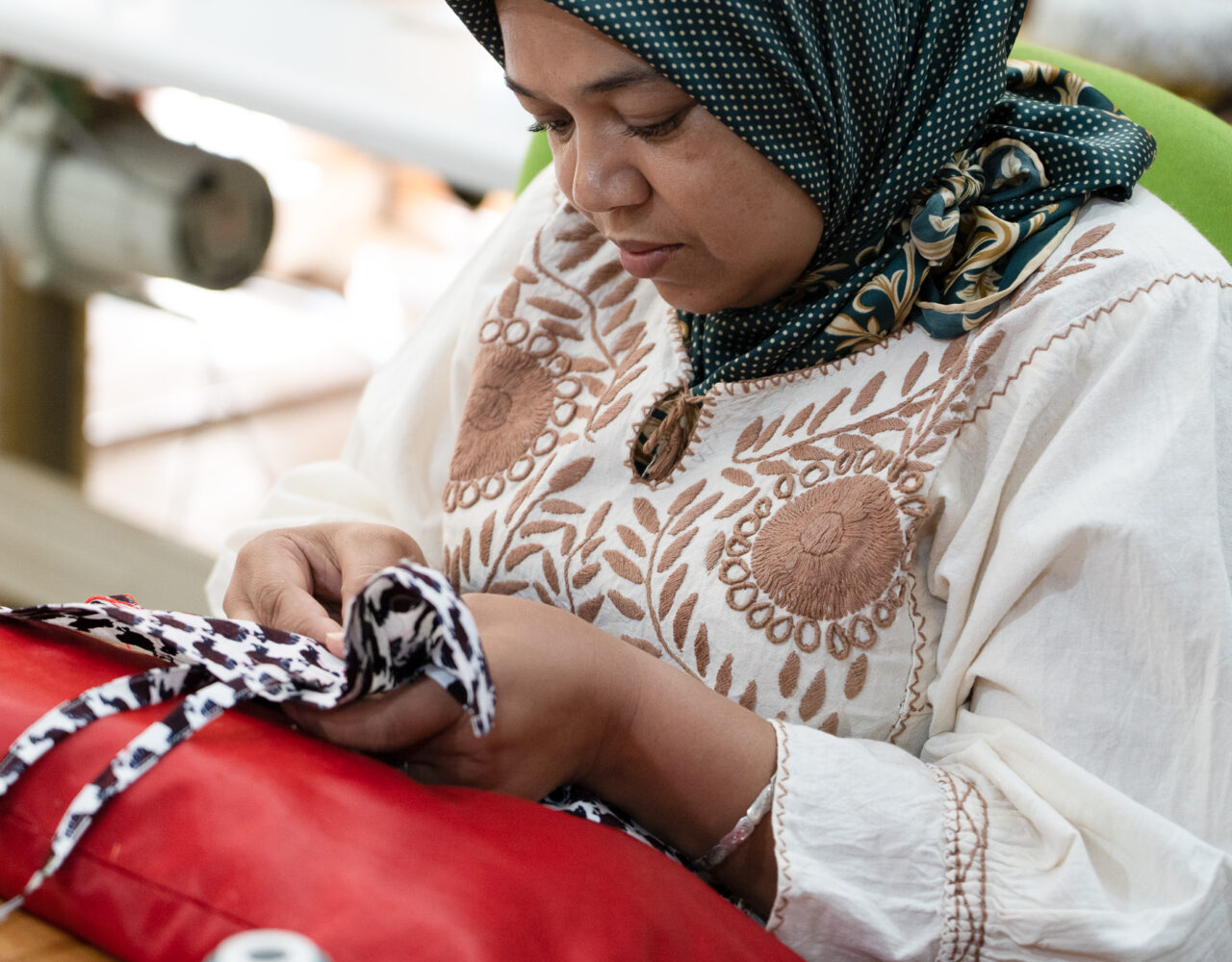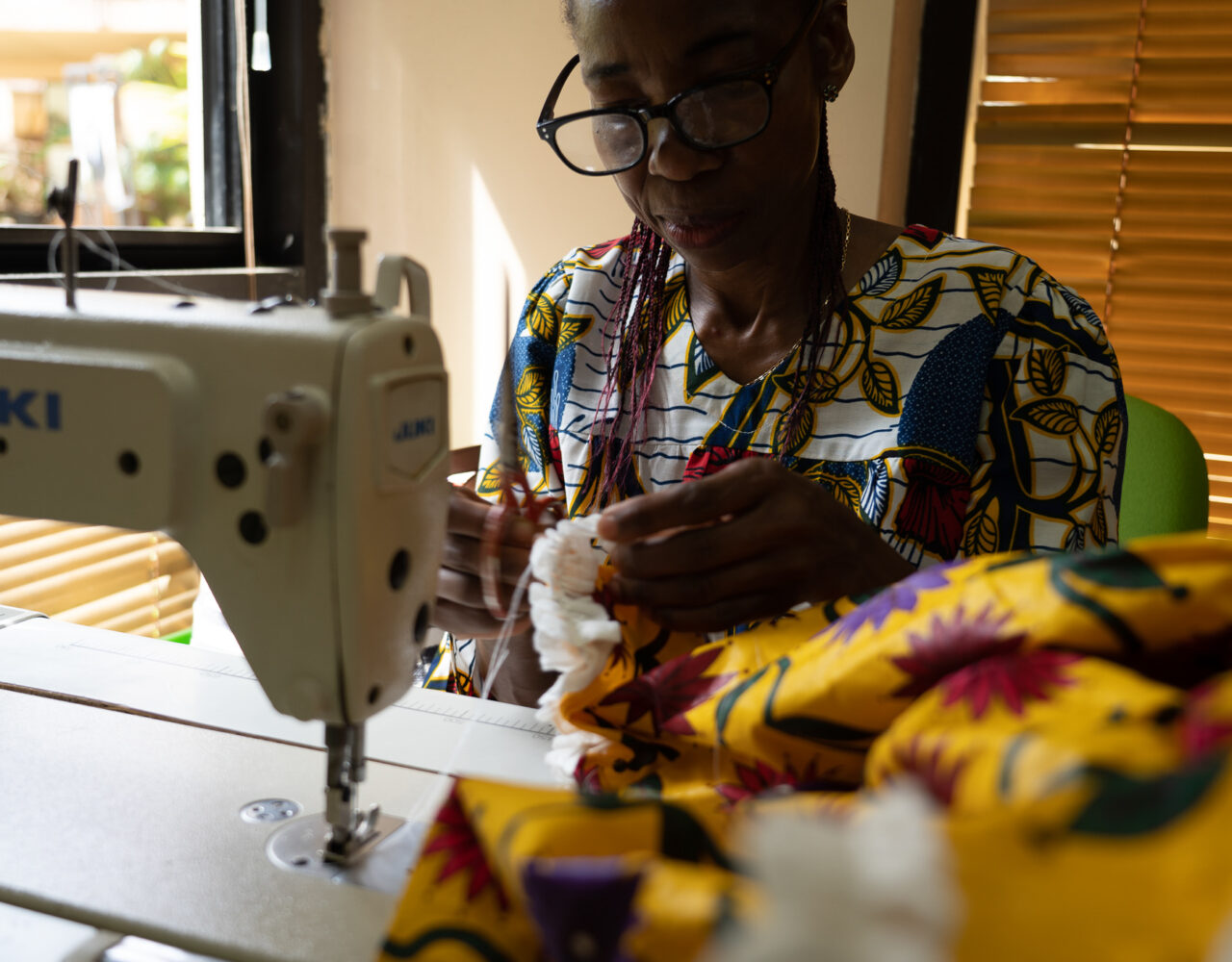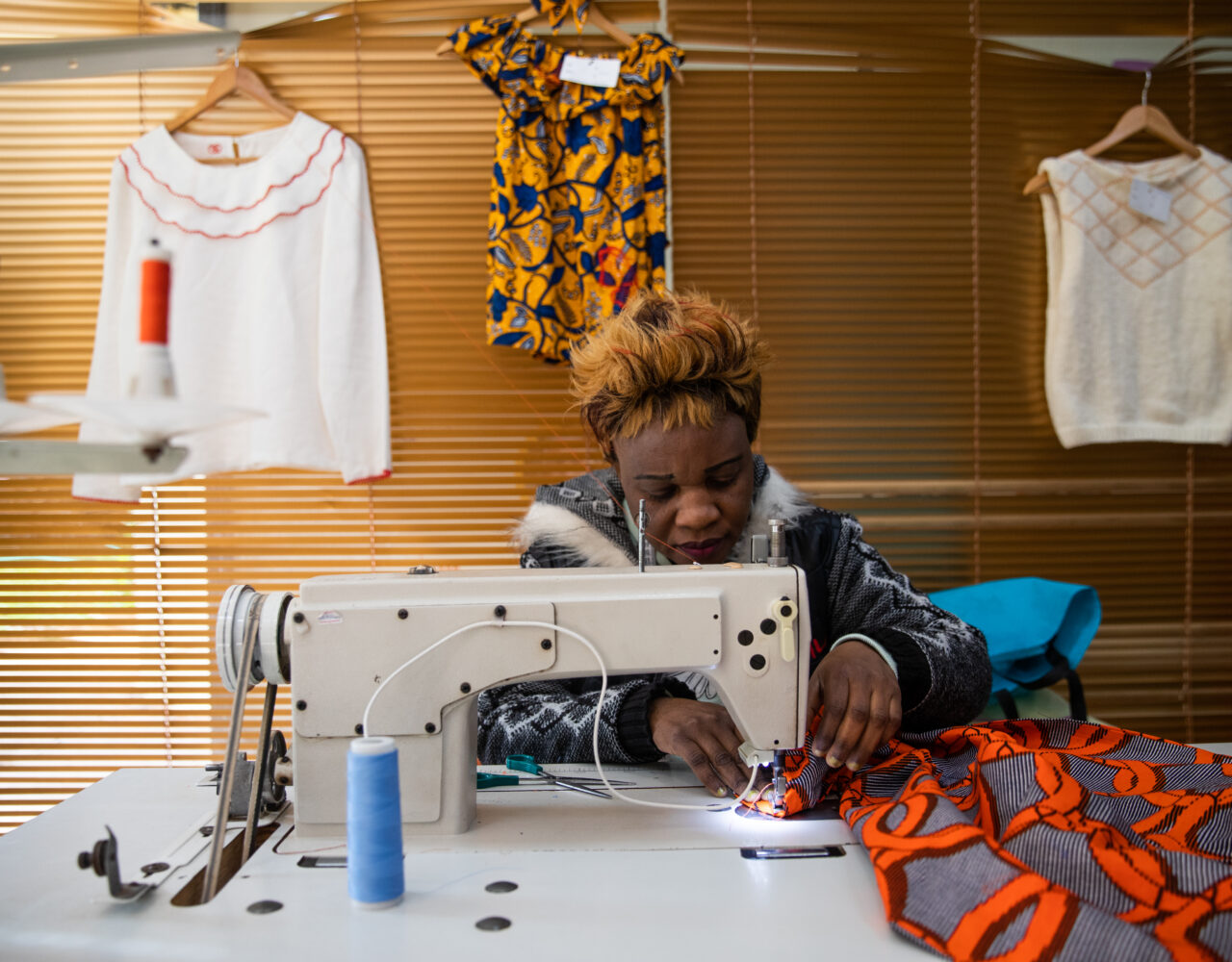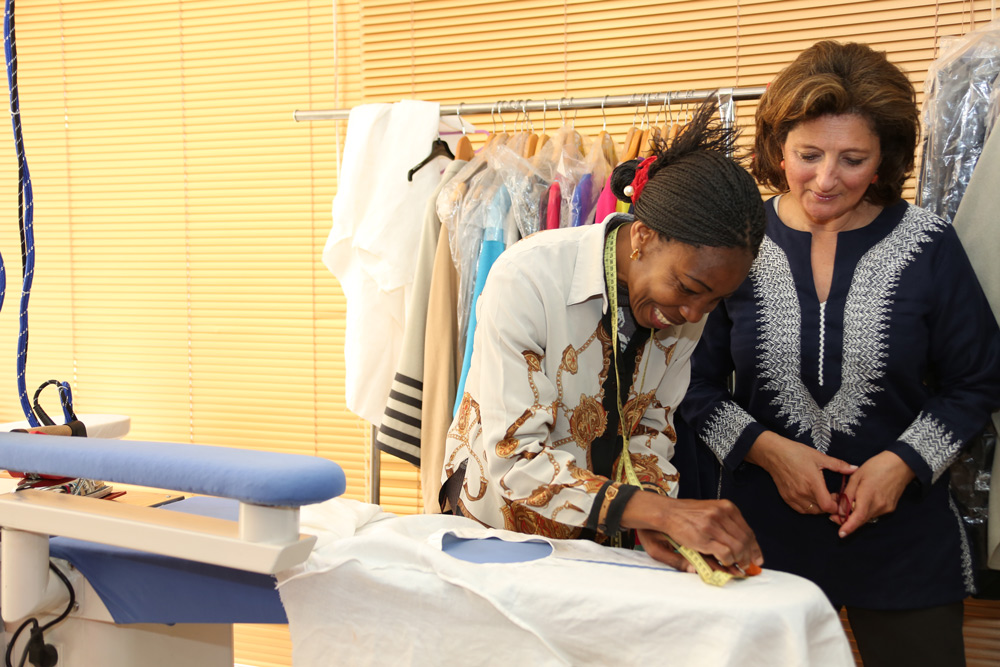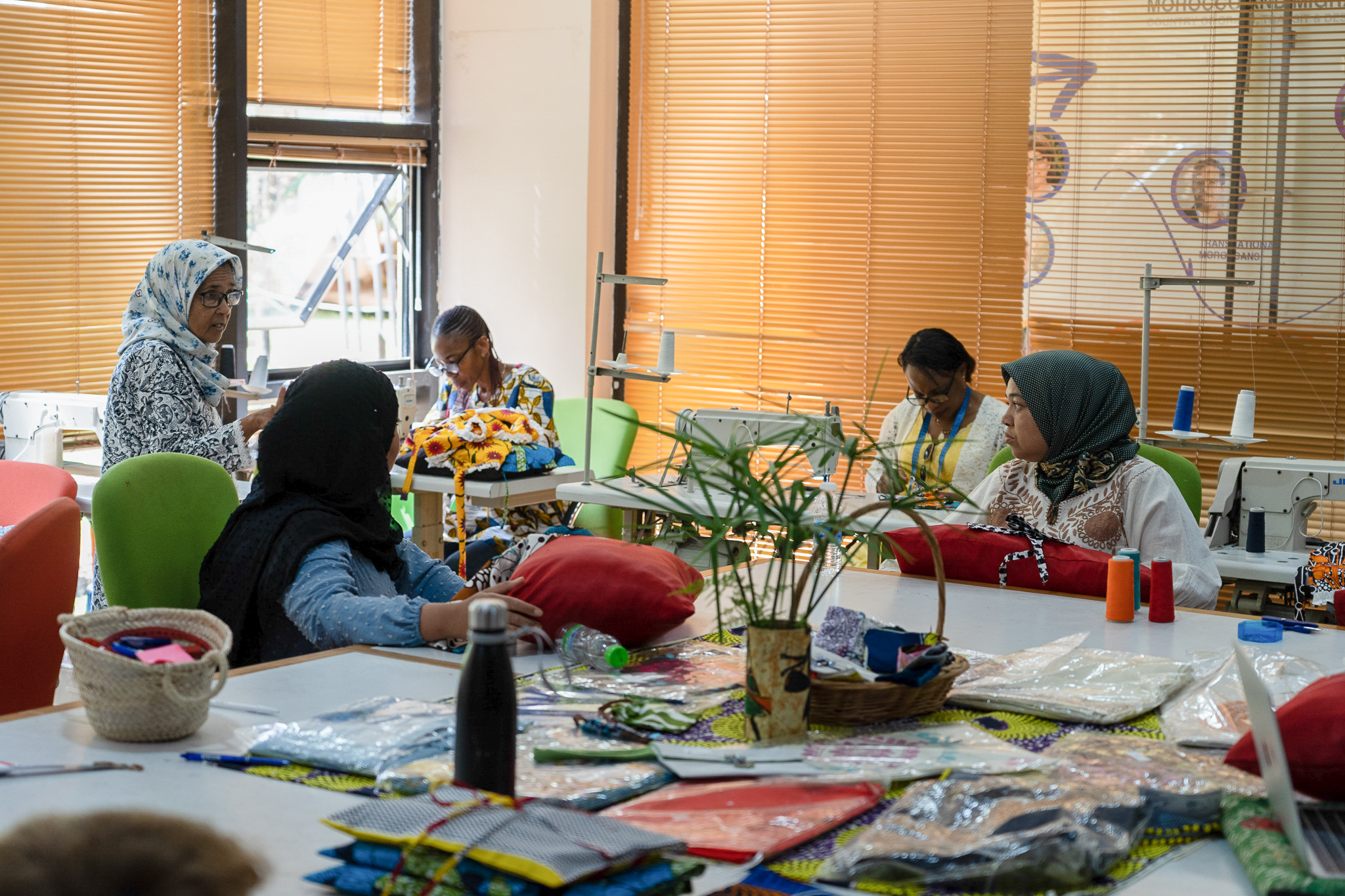
By foot or by truck, years after leaving their countries of origin, they arrived in Morocco. They carried only their hands and a memory. Both are custodians of a knowledge as diverse as their origins: the art of embroidery. In their new country, leaving the house and enrolling in a course provides social ties, work, and dignity. The violence took everything they owned except their identity. With their needles and their nostalgia, they perpetuate it, modernize it and transmit it.
A simple embroidery and couture atelier has become a powerful symbol of interculturality at Fondation Orient-Occident: a vibrant tapestry of journeys, stories, beliefs, and actions. Established in Rabat in 2010, the Migrants du Monde workshop is run by Moroccan, migrant, and refugee women who have fled countries torn by war or economic hardship. This atelier is not only a place of work but a living repository of ancestral knowledge passed down through generations. United by a shared economic project, these women find community, identity, and solidarity as they build together. The workshop fosters social bonds and becomes a welcoming space where integration begins and friendships blossom, truly transforming participants into one family. Initially and nowadays led by French designer Isabelle Camard, it has also been supervised by Italian Bruna Pizzichini and Moroccan designer Kenza Echouafni. The story of Solange, one of the atelier’s women, exemplifies the transformative power of this initiative, highlighting how displaced individuals can create new lives and rebuild identity through shared creative work.
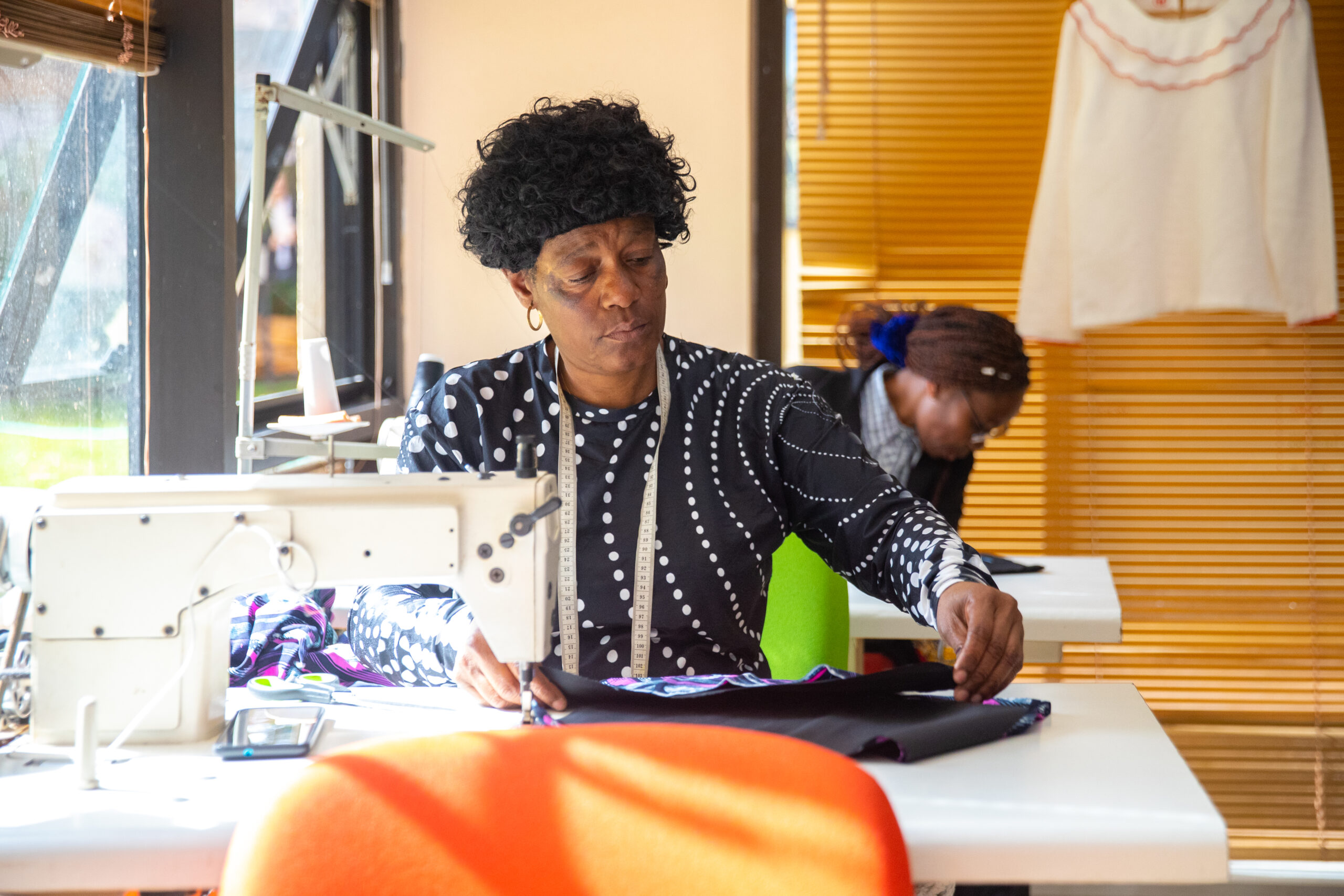

Following the success of the Moroccan atelier, Fondation Orient-Occident expanded the Migrants du Monde project internationally by opening an Italian branch in 2016 in Lecce, launching a one-year project in partnership with ARCI and local authorities. Mirroring the Moroccan model, this atelier brought together migrant and Italian women, mixing their diverse embroidery traditions and using garment sales to fund their training and salaries. Specializing in womenswear, menswear, kidswear, and accessories crafted from cotton, linen, African wax cloth, and wool, Migrants du Monde transforms traditional embroidery techniques from Morocco, Palestine, Iraq, sub-Saharan Africa, and other regions into exquisite garments that celebrate cultural heritage. Each stitch tells a story, weaving a rich tapestry of global traditions that act as a bridge between cultures. With a shop and showroom in Rabat and sales points across Morocco and Italy, the atelier has showcased its creations in fashion shows and cultural events in Madrid, Paris, Lebanon, and Morocco, including the Festival Rabat Africa and World Refugee Day. Garnering international awards and media attention, Migrants du Monde continues to promote diversity and craftsmanship—symbolized by notable ambassadors like Malian singer Rokia Traoré, who wore its garments during the 2016 Festival Mawazine opening.
Solange, 39 years old, comes from the Democratic Republic of Congo where she obtained a baccalaureate in maths and physics before starting her university studies. When war broke out in her country in 2000, she and thousands of others fled the horrors of the conflict. It took Solange 5 years to arrive in Morocco by all kinds of transportation modes. However, the word ‘walk’ is what comes out of her mouth the most. Her journey is worthy of a horror film. “Walk”, she said. “Always walk. From the first day to the last. You have to walk, walk, walk… Death is lurking if you don’t.
